Hey there! As we strive to create a respectful and inclusive environment, it's essential to revisit our code of conduct. This guide helps us all understand the expectations for behavior and ensures everyone feels valued and safe. Let's take a moment to reflect on these principles and their importance in fostering a positive community. Curious to learn more? Read on!

Clear language and tone
A code of conduct serves as a vital framework for fostering a respectful workplace environment. Effective communication emphasizes expectations surrounding behavior, integrity, and professionalism among employees. Regular reminders about the code of conduct, including its key principles, such as respect for colleagues, adherence to ethical standards, and accountability for one's actions, are essential for maintaining harmony. Additionally, reinforcing consequences for violations of the code, such as disciplinary actions or conflict resolution processes, helps cultivate a culture of compliance and mutual respect. Regular training sessions and discussions on the code can further enhance understanding and commitment to these important guidelines.
Specific guidelines and expectations
The code of conduct serves as a foundational document that outlines the specific guidelines and expectations for behavior within professional environments, such as corporate offices, educational institutions, or non-profit organizations. These guidelines emphasize respect, integrity, and accountability, fostering a culture where individuals feel safe and valued. Key expectations include adhering to ethical standards, promoting diversity, and preventing harassment or discrimination against any group, including but not limited to, race, gender, or religion. Additionally, protocols for reporting violations are outlined to ensure transparency and proactive conflict resolution. Regular training sessions are often scheduled to reinforce these principles, making them integral to the organization's mission.
Professional boundaries and ethics
Professional boundaries serve as essential guidelines for maintaining ethical standards in various industries, including healthcare, education, and social services. Awareness of these boundaries is crucial for fostering trust and respect between professionals and clients. Breaches in professional boundaries can lead to conflicts of interest, inappropriate relationships, and diminished client well-being, notably affecting vulnerable populations. Ethical conduct, outlined in codes of conduct from organizations like the American Psychological Association (APA) or the National Association of Social Workers (NASW), emphasizes integrity, confidentiality, and the importance of maintaining a respectful distance in professional relationships. Continuous training and workshops educate professionals on these principles, ensuring adherence and promoting a safe environment for both clients and practitioners.
Consequences of non-compliance
Non-compliance with the established code of conduct within organizations, such as corporate environments or educational institutions, can lead to significant repercussions. Infractions may result in disciplinary action, including verbal warnings, written reprimands, suspension, or even termination, depending on the severity of the violation. In workplace settings, incidents of misconduct can damage professional relationships, diminish employee morale, and undermine the organization's reputation. In educational institutions, breaches of the code may lead to academic probation, expulsion, or loss of privileges. Engaging in unethical behavior, such as harassment or bullying, can have legal consequences, including lawsuits or fines. Awareness of these potential outcomes underscores the importance of adhering to the code of conduct.
Contact information for questions or concerns
Adhering to a code of conduct is essential in maintaining a positive workplace environment. Employees are encouraged to familiarize themselves with the company policies outlined in the employee handbook, which includes guidelines on ethical behavior, respect, and professionalism. Questions or concerns regarding this code can be directed to the Human Resources department, reachable at 555-1234, or via email at hr@companyname.com. Additionally, an anonymous feedback portal is available on the company intranet, allowing employees to voice their concerns without fear of repercussions. Upholding these standards ensures a safe and inclusive atmosphere for all staff members.

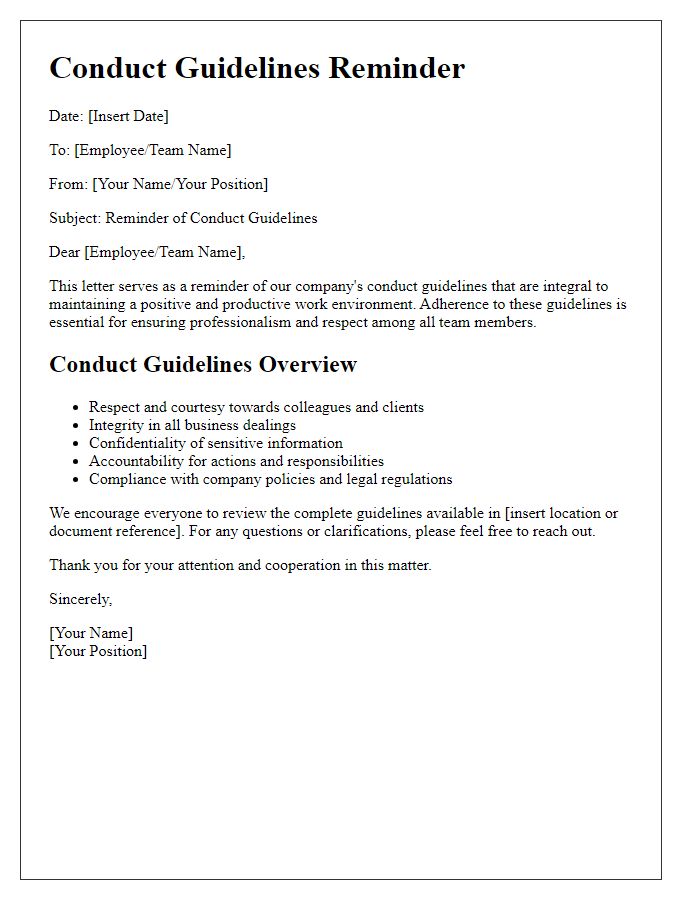
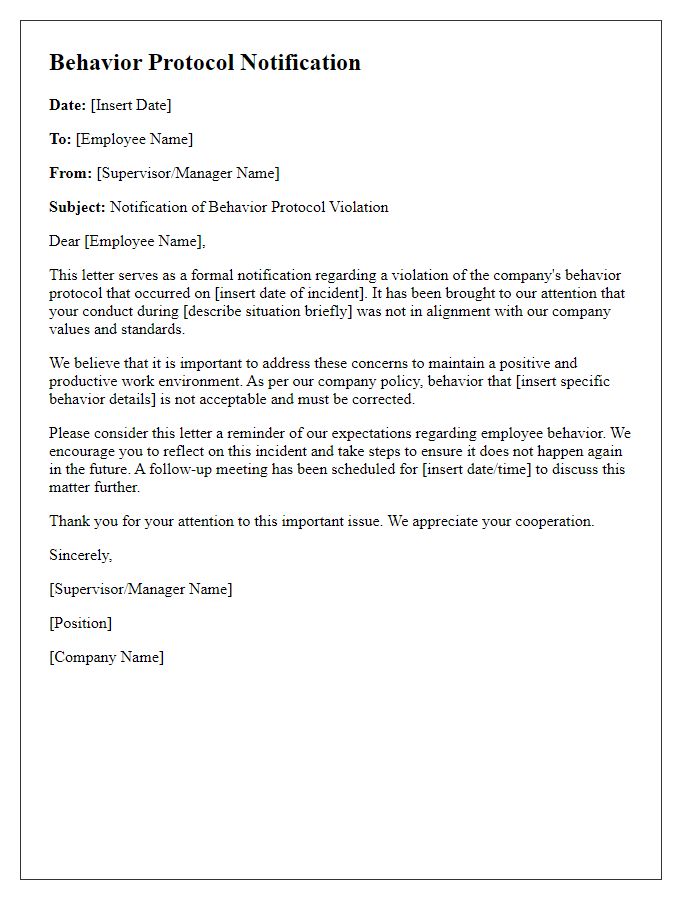
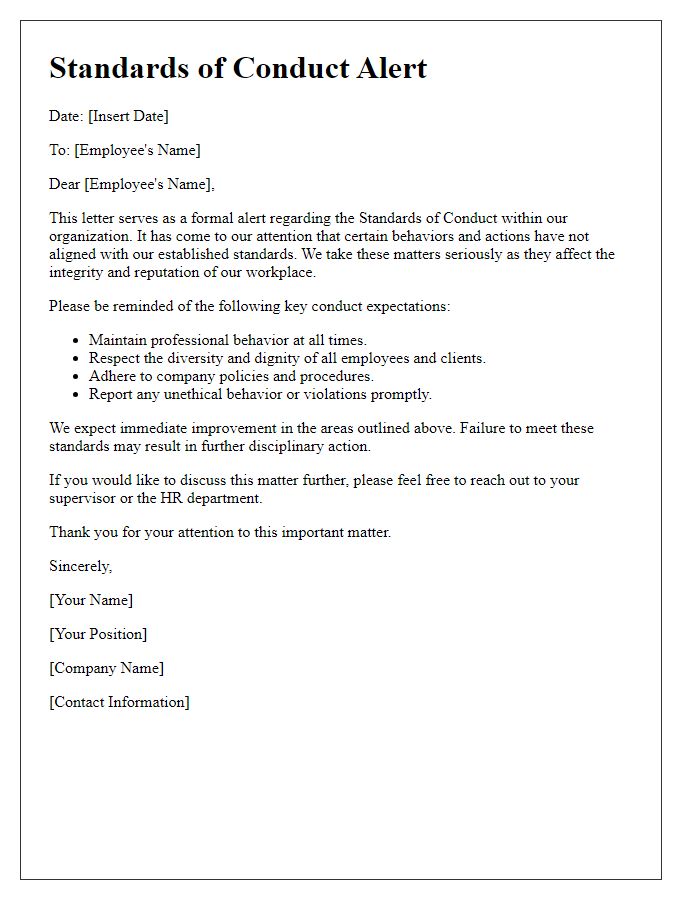
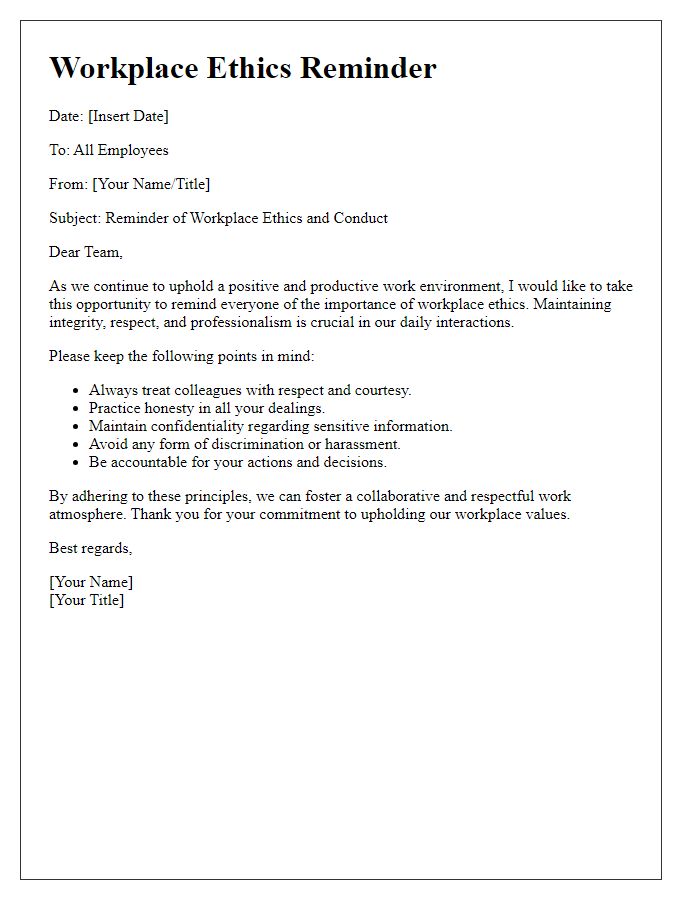
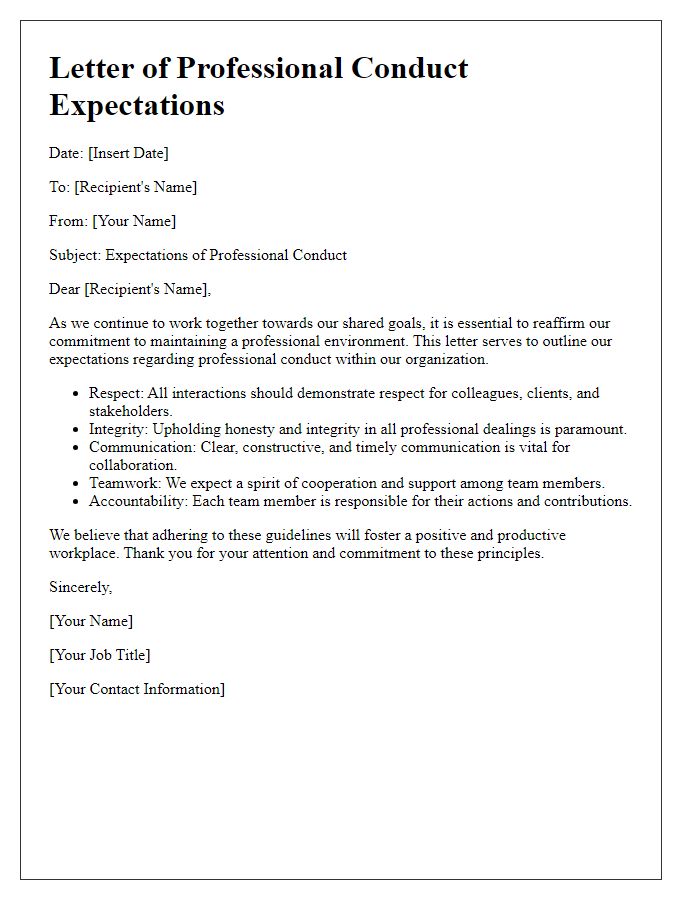
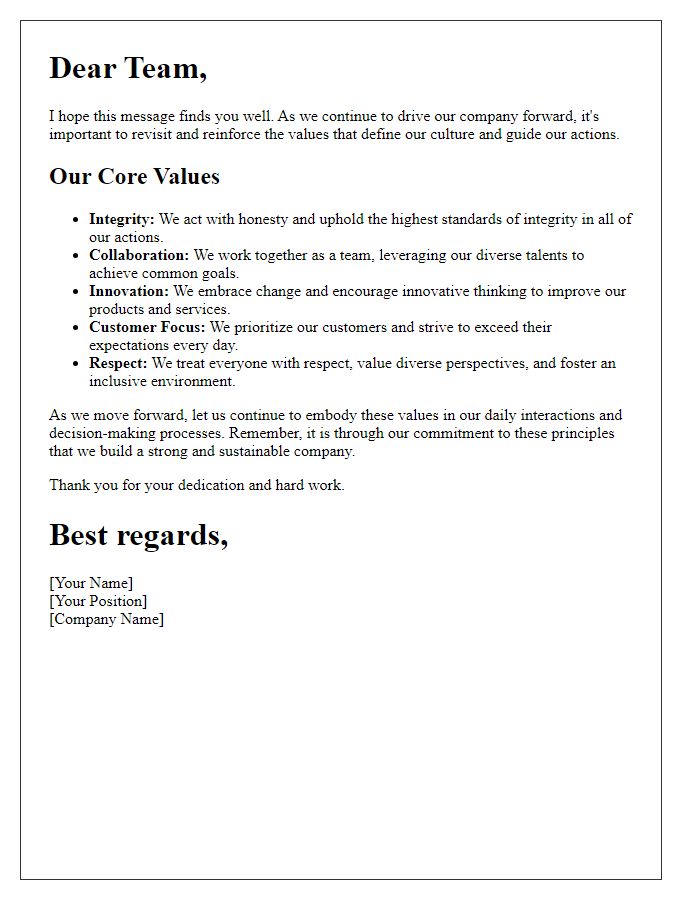
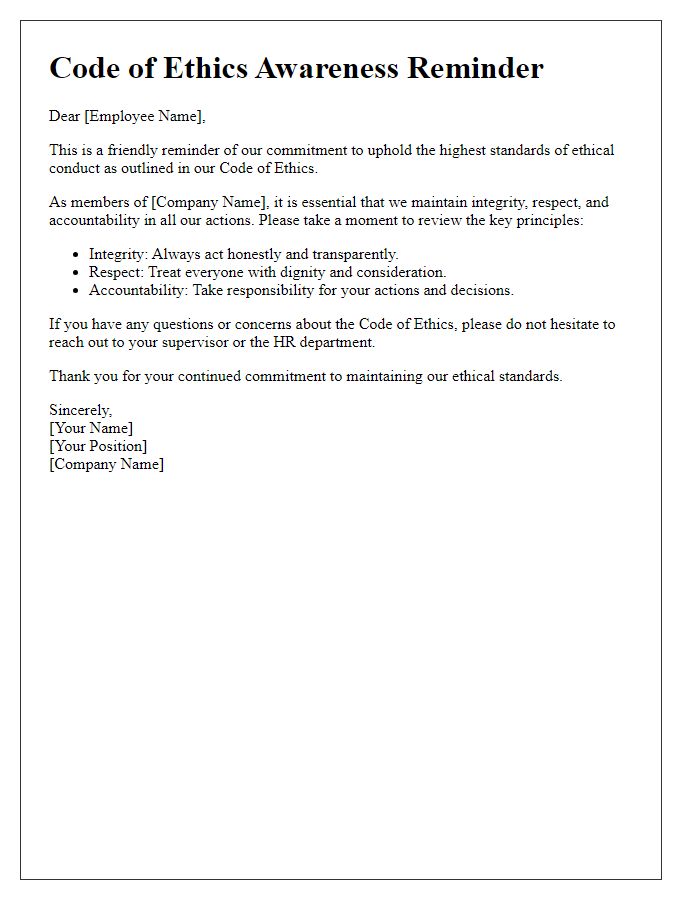
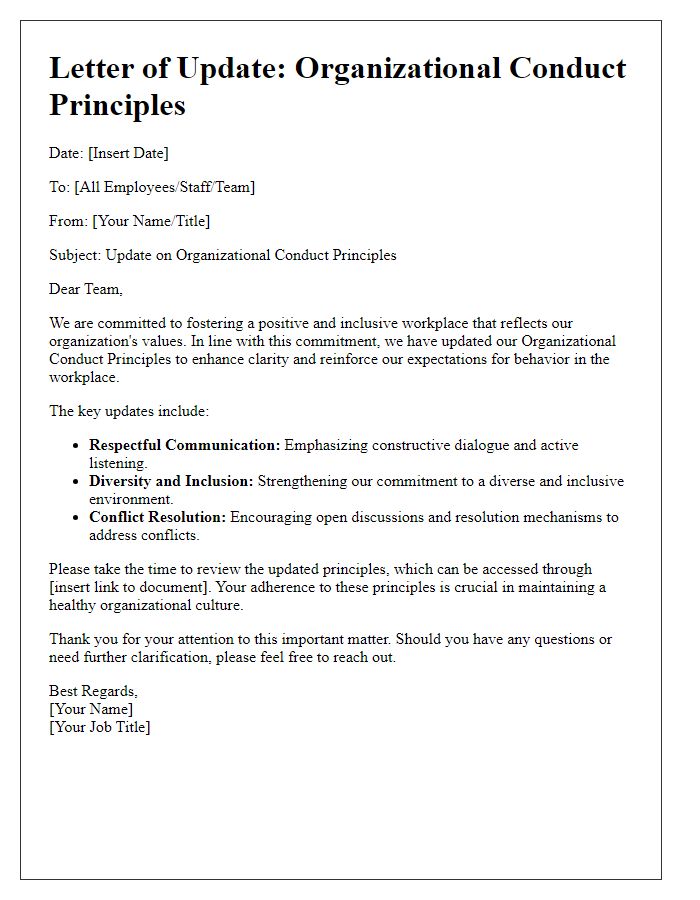
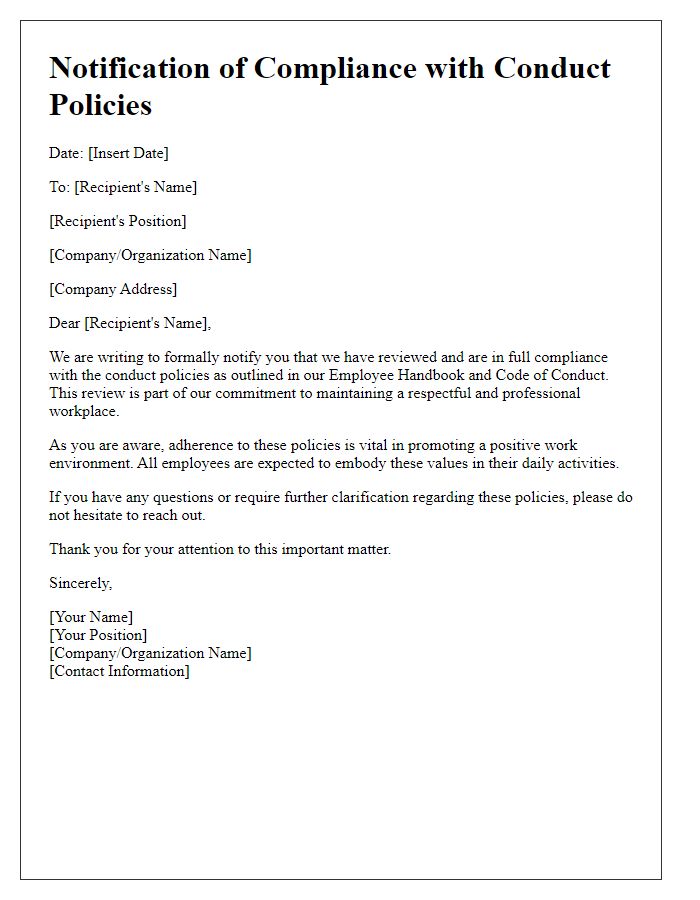
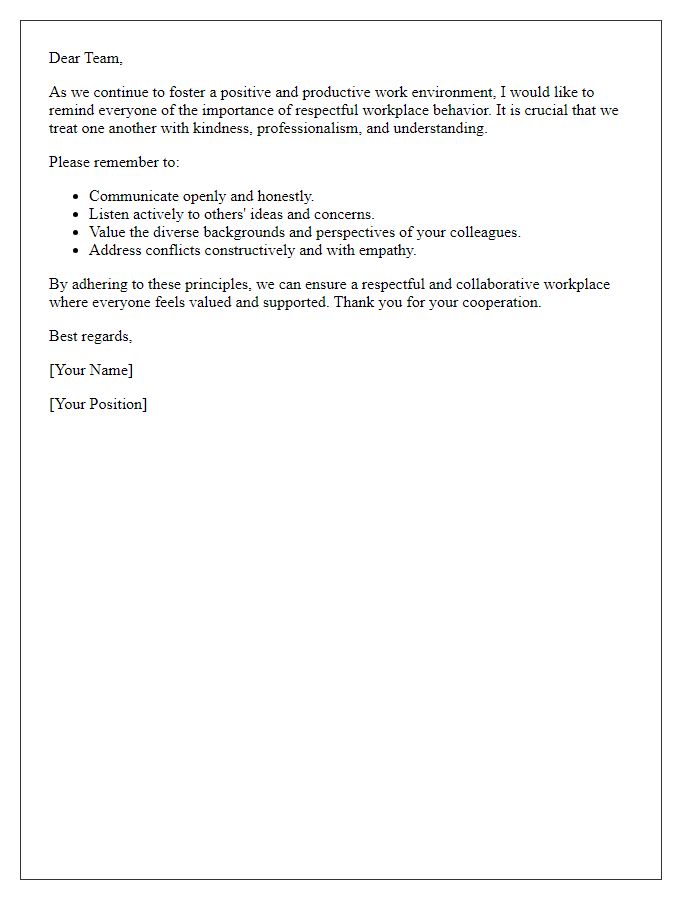


Comments